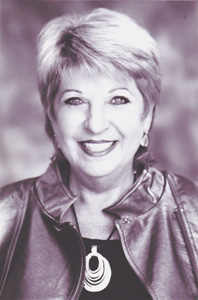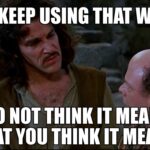 Finding The Truth About Your Work – Good, Bad Or Indifferent
Finding The Truth About Your Work – Good, Bad Or Indifferent
by Michele Wallerstein
OK, let’s say you’ve come this far as a writer: you’ve written one or two original screenplays or a novel or one or two TV movies or spec episodes. Now comes the scary part. Are they any good? Are you any good? Are you the best or the worst anyone has ever seen? Sure your family thinks you are either a genius or wasting your time. What’s the truth and how do you find out.
Let me share some information with you that will help. I’m sure you’ve already heard that the opinions of family and friends don’t really count. By the way that includes any professional writers who happen to be friends or relatives. The emotional baggage here is always in the way. Next step you take is to present it in its entirety to your writers group. “Ahhh,” you say to yourself, “Now I’ll get the truth.” Not so fast. The people in your writers groups have their own agendas. These agendas may be conscious or unconscious, but they are there. Do these people really want you to succeed before they do? Do they want you to be a better writer than they are? Do they have the skills to really know??? The answers to these questions are most often NO. The reason they are in these groups is to learn and to connect with other wannabe writers. They aren’t pros.
That’s your answer. Find a pro. They are easy to find but you must fully “vet” them before you proceed. Professional writing consultants come in all shapes and sizes. Their fees vary widely as do their professional expertise and backgrounds.
You also must know exactly what you want them to do for you. I’ve seen many websites where writer’s consultants offer “coverage” of your script. Why, in heaven’s name, would you need coverage? Coverage means that they will tell you your story. You probably already know it.
You will also need to see that your material is in the proper format, has no grammatical errors, nor spelling errors. No self respecting writer presents a flawed piece of work to anyone.
When you start looking for a good consultant, make sure that you thoroughly read their websites and that those websites give you all the information that you want. You should also have a phone conversation with the finalists on your list. See what they have to say about their work. A good consultant has had lots of experience in your particular genre. Perhaps they have worked previously as a development executive, editor, professional writer, agent, or producer. These are all good things. They show a history in the business and an interest in it. Make sure that they have not just started consulting after spending 3 months at their previous work. Get someone who knows their stuff. You deserve it.
A consultant can do the following for you:
- They can tell you what is working in your material and what is not.
- They can advise you on how to fix the problems.
- They can give you their opinion as to whether the material is hot or possible cold in today’s market.
- They can help you learn more about the craft or writing vis a vis characters, plot, dialogue, story, etc.
- They can give you a fair and professional evaluation of your work.
A consultant can not do the following for you:
- They can not rewrite the script for you.
- They can not promise your script will sell.
- They can not tell if you have no talent. (explanation to follow)
Talent is a very ephemeral thing. It’s not that it is simply subjective. The ability to become a good writer can be learned. It is a long and arduous task but there are lots of ways to do it. When you are first starting out as a writer your work will not be wonderful. At best it will be OK. You must continue to practice the craft, learn from others and take good advice.
Sometimes writers choose the wrong genre. They write novels when they should be writing screenplays. They might want to write comedy but are better at drama. There are so many choices to make. When you start out you should put your toe into all different modes of writing to see what fits for you. Any consultant who tells you that you have no talents is out of line. They can tell you that your piece needs a lot of work, or that you need to takes some writing classes, but they can not possibly know that your talent will or won’t blossom at some later date.
Getting the good advice from a consultant is half the battle. Now it is up to you to follow that advice and improve your work. Rewrite it until it shines and the consultant feels that it is really good. Don’t get defensive when given notes on how to fix your material. Listen with an open mind and heart. Consultants want you to be good and they want you to be successful. We have no other agenda. If the first consultant you work with doesn’t feel right to you, than find another one. You are lucky to be able to get this help.
Michele Wallerstein is a Screenplay & Novel & Career Consultant and author of “MIND YOUR BUSINESS: A Hollywood Literary Agent’s Guide To Your Writing Career“.
Web site: www.novelconsultant.com
Copyright 2009 Michele Wallerstein. Not be used without written permission from Author.





Trackbacks/Pingbacks